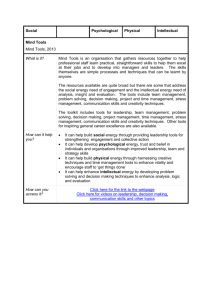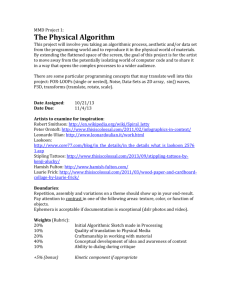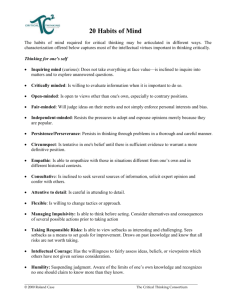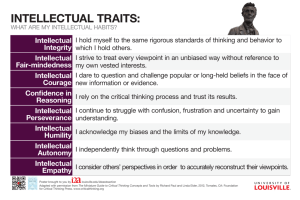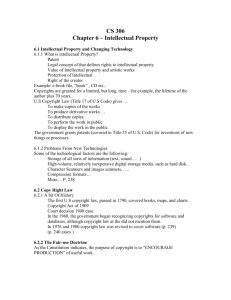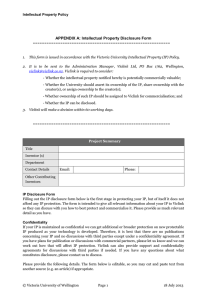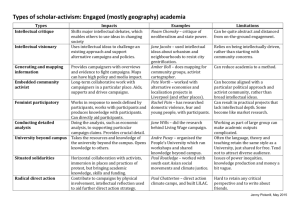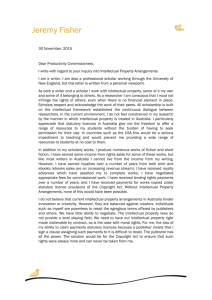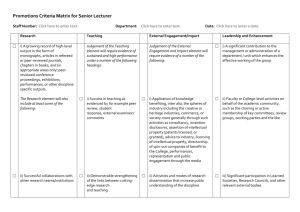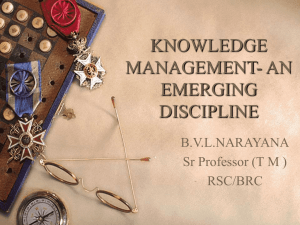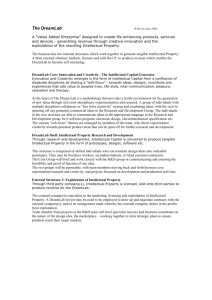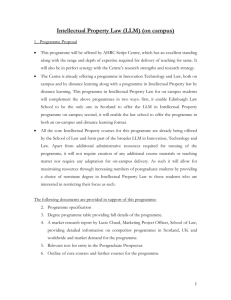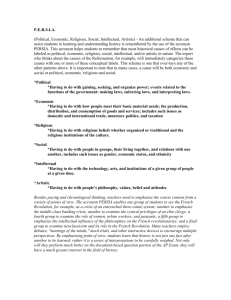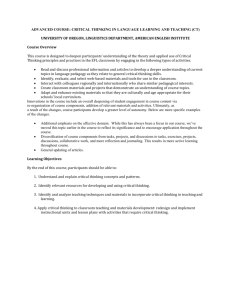Preface
advertisement
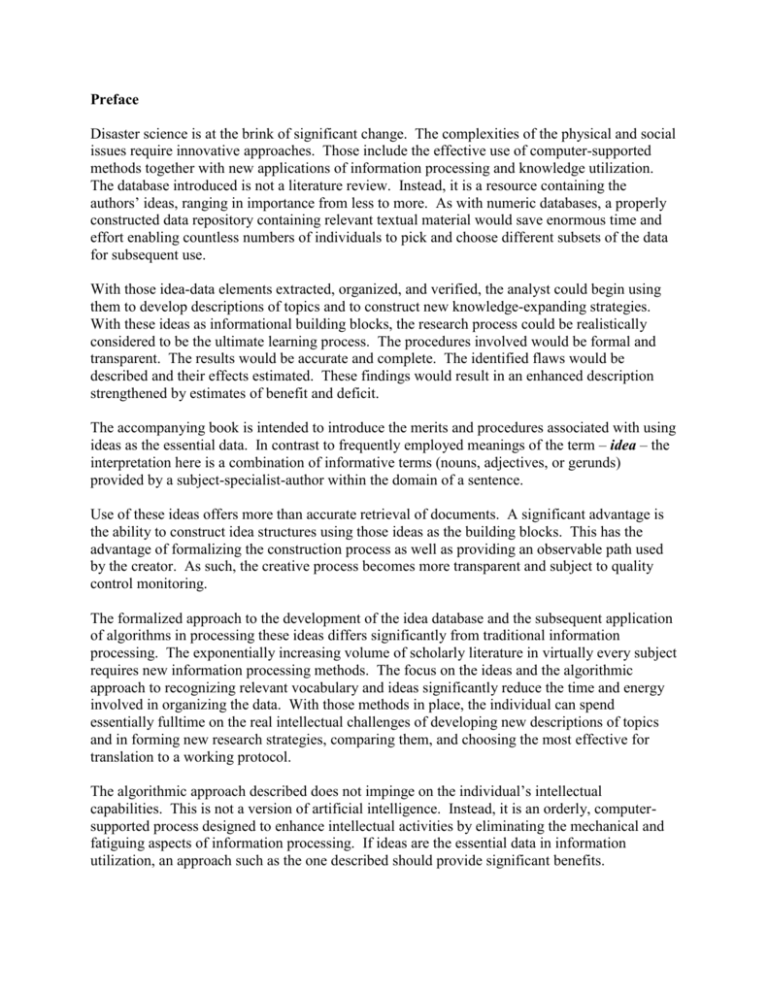
Preface Disaster science is at the brink of significant change. The complexities of the physical and social issues require innovative approaches. Those include the effective use of computer-supported methods together with new applications of information processing and knowledge utilization. The database introduced is not a literature review. Instead, it is a resource containing the authors’ ideas, ranging in importance from less to more. As with numeric databases, a properly constructed data repository containing relevant textual material would save enormous time and effort enabling countless numbers of individuals to pick and choose different subsets of the data for subsequent use. With those idea-data elements extracted, organized, and verified, the analyst could begin using them to develop descriptions of topics and to construct new knowledge-expanding strategies. With these ideas as informational building blocks, the research process could be realistically considered to be the ultimate learning process. The procedures involved would be formal and transparent. The results would be accurate and complete. The identified flaws would be described and their effects estimated. These findings would result in an enhanced description strengthened by estimates of benefit and deficit. The accompanying book is intended to introduce the merits and procedures associated with using ideas as the essential data. In contrast to frequently employed meanings of the term – idea – the interpretation here is a combination of informative terms (nouns, adjectives, or gerunds) provided by a subject-specialist-author within the domain of a sentence. Use of these ideas offers more than accurate retrieval of documents. A significant advantage is the ability to construct idea structures using those ideas as the building blocks. This has the advantage of formalizing the construction process as well as providing an observable path used by the creator. As such, the creative process becomes more transparent and subject to quality control monitoring. The formalized approach to the development of the idea database and the subsequent application of algorithms in processing these ideas differs significantly from traditional information processing. The exponentially increasing volume of scholarly literature in virtually every subject requires new information processing methods. The focus on the ideas and the algorithmic approach to recognizing relevant vocabulary and ideas significantly reduce the time and energy involved in organizing the data. With those methods in place, the individual can spend essentially fulltime on the real intellectual challenges of developing new descriptions of topics and in forming new research strategies, comparing them, and choosing the most effective for translation to a working protocol. The algorithmic approach described does not impinge on the individual’s intellectual capabilities. This is not a version of artificial intelligence. Instead, it is an orderly, computersupported process designed to enhance intellectual activities by eliminating the mechanical and fatiguing aspects of information processing. If ideas are the essential data in information utilization, an approach such as the one described should provide significant benefits. One of the important features of data management is the development of data repositories that have been carefully constructed, edited and available for use. If this concept were applied to text, the need for general searches would be eliminated. Instead, the information contained in the data repository would often replace the need for searches, enabling the analyst to proceed directly to the higher cognitive functions – synthesis, comparison, evaluation, judgment, and application. These functions are the essence of critical and creative thinking.


